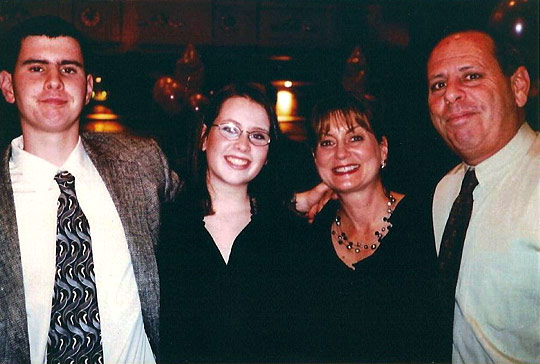Growing Up, With Help

In New Jersey, an adult with autism finds his place
At the Allegro School in Cedar Knolls, New Jersey, Albert Young shuffled into the lobby and hugged his sister Ashley. He had a cold, and he coughed dryly into his arm as he swiped his punch card through the time clock machine. After retrieving his coat, he started to swipe the card again when Ashley stopped him.
“You swiped it already, Al,” she said.
“I swiped it already? I swiped the card already?” he repeated, and she nodded in confirmation.
Later, the two drove to lunch, with a reporter in the back seat, for a private celebration of Young’s 24th birthday. During the drive, Albert became worried that he might not be allowed to attend dinner with his roommates that night.
“When we go back to the house,” he said, halting and knitting his eyebrows, “I’m going to ask Amy if I can go out to dinner with everyone, even though I’m going out for lunch.” Ashley said yes, but he was not wholly reassured.
“One more time. I’m…I’m trying to think of what to say,” he started, and paused to sniffle.
“Do you want me to say it for you?” Ashley asked, to which her brother replied, “Yes, please.” Ashley repeated his earlier statement about the party and Albert nodded. He did not make eye contact with his sister through the entire conversation.
Later, Ashley explained that this repetitive questioning is a symptom of Young’s autism. His formal diagnosis is PDD, or Pervasive Developmental Disorder, and one of the primary behaviors associated with his condition are difficulty in communicating needs and the use of repetitive speech.
“He’ll ask you something, and you’ll say yes,” Ashley explained, “Then he’ll ask again because even though he heard you, he won’t feel like he got an answer. You can’t say, ‘Yes, I told you that already.’ You just say yes again.”
Young is one of thousands of Americans with autism, a developmental disability resulting from a disorder of the human central nervous system, characterized by impaired social interaction, atypical behaviors and difficulty in communication. The Centers for Disease Control estimate that one in every 150 American children is autistic, and Young was diagnosed when he was three years old. He is classified as high-functioning, meaning he can read at a fourth or fifth grade level, speak well, perform basic functions of daily life and have relationships.
But as an autistic adult, he not only faces the normal challenges of finding a job, a place to live and a social support network, he must do these things while living with a disability. And in New Jersey, the occurrence of autism is the highest in the nation, estimated at one in every 94 children, and thus there is urgent need for programs and services to help individuals like Young function in society.
On March 15, the New Jersey State Assembly passed a seven-measure package, intended to enable the state to provide better lifetime care for people such as Young. The bills include measures designed to advance early detection of the disorder; initiatives to ensure that teachers are properly trained to educate autistic students; and, for Young’s age group, the establishment of an Adults with Autism Task Force, which is charged with improving the provision of basic services such as appropriate housing, job and skills training, and continued medical and behavioral support.
